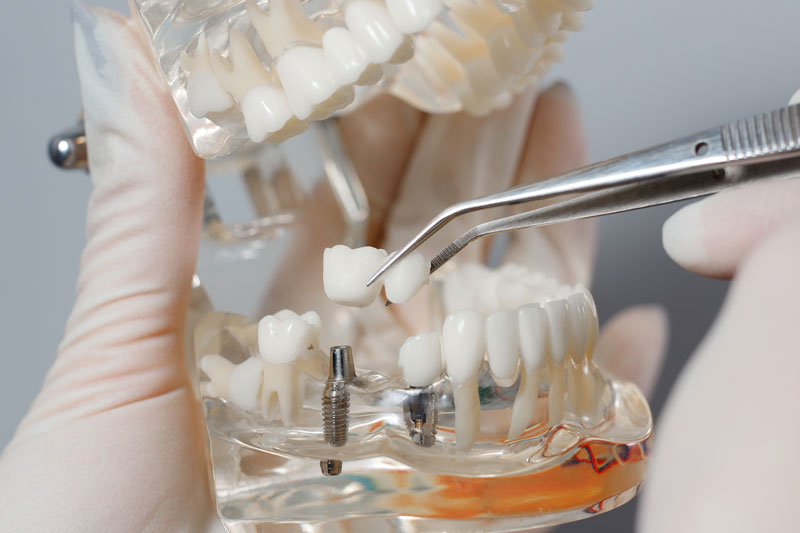Dental implants are a popular solution for tooth loss in Courtice. The process usually takes several months and requires a short surgical procedure. Generally, dental implant treatment in Bowmanville is extremely safe and suitable for just about anyone, but some factors can influence the overall chance of success, which can be related to general health.
Usually, age is not a risk factor for dental implant treatment, provided you are over eighteen. If a child has congenitally missing teeth, their remaining adult teeth and jaws must have finished growing and developing before they can have dental implant treatment in Clarington.
If someone is older and has reasonable general health, they can almost certainly have dental implants in Oshawa. Dental implant treatment can be extremely successful for older people, particularly those with complete tooth loss and seeking an alternative to full dentures.
What Are the Possible Risk Factors Associated with Dental Implants?
Complications from treatment can include problems with osseointegration, where the implants fail to fuse with the surrounding bone and consequently can become loose. Improperly placed implants can cause nerve damage that might be temporary or permanent. They may not function as well as correctly inserted dental implants in Ajax or will not look as good when fully restored.
Other problems can arise if someone smokes or has difficulty maintaining a good oral care routine in Brooklin and does not clean around their implant teeth thoroughly and regularly. Some people might be less suitable for dental implant treatment in Whitby if they have a compromised immune system, have osteoporosis or are receiving radiotherapy or chemotherapy.
How Common are Dental Implant Complications?
If you have reasonable dental and general health, your dental implant treatment most likely has a high chance of success. The success rate for dental implants can be 95% or higher, and many people will find their implant teeth last for years without any complications. If you have gum disease in Pickering, the risk of implant problems increases considerably.
How to Receive Dental Implant Treatment Safely
When you visit Durham Dental Solutions for implant treatment, you will receive a full consultation to help you decide if implants are the right choice for you and if you are suitable for this procedure. Our practice has an excellent success rate because we screen patients carefully, ensuring they have reasonable general and dental health and fully understand the implant process and aftercare.
All implants are planned and placed using computer-guided surgery, meaning we use a cone beam CT scan of your mouth to plan implant placement digitally. Digitally planning your implant treatment ensures each implant is inserted accurately, avoiding all nerves and other important structures in your jawbone. The technique ensures that once restored, your new implant teeth function fully while looking good, which is more difficult to achieve if implants are not optimally placed.
Ensuring Implant Treatment is Comfortable
Dental implant surgery should be pain-free, especially as we can use sedation dentistry to ensure treatment is more pleasant. After surgery, you may feel some minor discomfort, but this is controllable with over-the-counter pain relief, or we can prescribe something stronger if needed. If you only need one or two dental implants, having little or no discomfort is not unusual.
Ensuring You Have Teeth Throughout Treatment
Being left without teeth is an understandable fear, but some dental implants can be restored almost immediately afterwards with a temporary restoration. If this isn’t possible then another temporary restoration can be supplied instead.
Dental implant treatment is great, but it won’t be right for everyone. If we don’t feel dental implants are the best choice for you, we can discuss alternatives.


